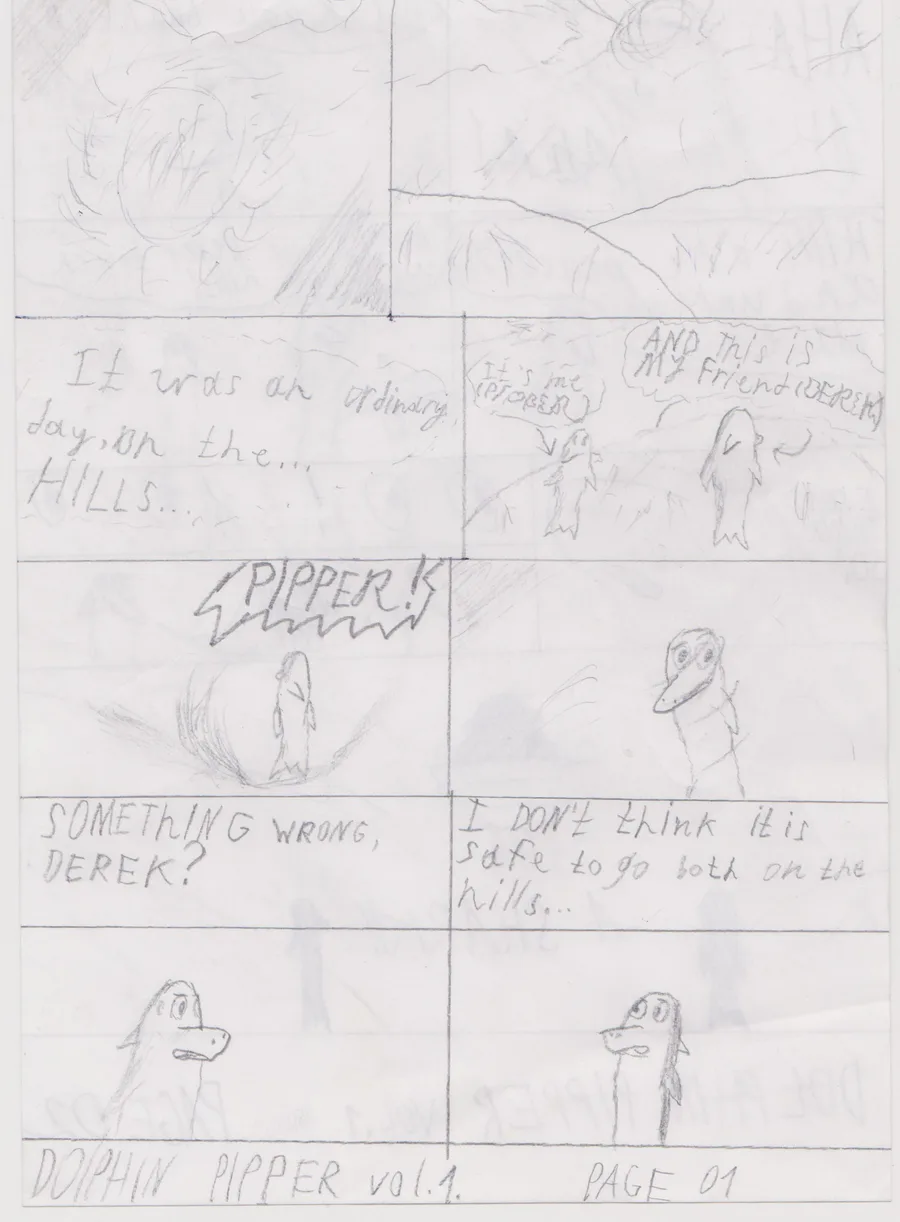The infinite monkey theorem states that a monkey hitting keys at random on a typewriter keyboard for an infinite amount of time will almost surely type any given text, including the complete works of William Shakespeare.[a] In fact, the monkey would almost surely type every possible finite text an infinite number of times. The theorem can be generalized to state that any sequence of events that has a non-zero probability of happening will almost certainly occur an infinite number of times, given an infinite amount of time or a universe that is infinite in size
Consider the probability of typing the word banana on a typewriter with 50 keys. Suppose that the keys are pressed independently and uniformly at random, meaning that each key has an equal chance of being pressed regardless of what keys had been pressed previously. The chance that the first letter typed is 'b' is 1/50, and the chance that the second letter typed is 'a' is also 1/50, and so on. Therefore, the probability of the first six letters spelling banana is:
(1/50) × (1/50) × (1/50) × (1/50) × (1/50) × (1/50) = (1/50)6 = 1/15,625,000,000.
The result is less than one in 15 billion, but not zero.
From the above, the chance of not typing banana in a given block of 6 letters is 1 − (1/50)6. Because each block is typed independently, the chance Xn of not typing banana in any of the first n blocks of 6 letters is:
Xn=(1−1506)n.
As n grows, Xn gets smaller. For n = 1 million, Xn is roughly 0.9999, but for n = 10 billion Xn is roughly 0.53 and for n = 100 billion it is roughly 0.0017. As n approaches infinity, the probability Xn approaches zero; that is, by making n large enough, Xn can be made as small as is desired, and the chance of typing banana approaches 100%. Thus, the probability of the word banana appearing at some point in an infinite sequence of keystrokes is equal to one.
The same argument applies if we replace one monkey typing n consecutive blocks of text with n monkeys each typing one block (simultaneously and independently). In this case, Xn = (1 − (1/50)6)n is the probability that none of the first n monkeys types banana correctly on their first try. Therefore, at least one of infinitely many monkeys will (with probability equal to one) produce a text as quickly as it would be produced by a perfectly accurate human typist copying it from the original
This can be stated more generally and compactly in terms of strings, which are sequences of characters chosen from some finite alphabet:
Given an infinite string where each character is chosen uniformly at random, any given finite string almost surely occurs as a substring at some position.
Given an infinite sequence of infinite strings, where each character of each string is chosen uniformly at random, any given finite string almost surely occurs as a prefix of one of these strings.
Both follow easily from the second Borel–Cantelli lemma. For the second theorem, let Ek be the event that the kth string begins with the given text. Because this has some fixed nonzero probability p of occurring, the Ek are independent, and the below sum diverges,
∑k=1∞P(Ek)=∑k=1∞p=∞,
the probability that infinitely many of the Ek occur is 1. The first theorem is shown similarly; one can divide the random string into nonoverlapping blocks matching the size of the desired text and make Ek the event where the kth block equals the desired string
However, for physically meaningful numbers of monkeys typing for physically meaningful lengths of time the results are reversed. If there were as many monkeys as there are atoms in the observable universe typing extremely fast for trillions of times the life of the universe, the probability of the monkeys replicating even a single page of Shakespeare is unfathomably small.
Ignoring punctuation, spacing, and capitalization, a monkey typing letters uniformly at random has a chance of one in 26 of correctly typing the first letter of Hamlet. It has a chance of one in 676 (26 × 26) of typing the first two letters. Because the probability shrinks exponentially, at 20 letters it already has only a chance of one in 2620 = 19,928,148,895,209,409,152,340,197,376 (almost 2 × 1028). In the case of the entire text of Hamlet, the probabilities are so vanishingly small as to be inconceivable. The text of Hamlet contains approximately 130,000 letters. Thus, there is a probability of one in 3.4 × 10183,946 to get the text right at the first trial. The average number of letters that needs to be typed until the text appears is also 3.4 × 10183,946, or including punctuation, 4.4 × 10360,783.
Even if every proton in the observable universe (which is estimated at roughly 1080) were a monkey with a typewriter, typing from the Big Bang until the end of the universe (when protons might no longer exist), they would still need a far greater amount of time – more than three hundred and sixty thousand orders of magnitude longer – to have even a 1 in 10500 chance of success. To put it another way, for a one in a trillion chance of success, there would need to be 10360,641 observable universes made of protonic monkeys. As Kittel and Kroemer put it in their textbook on thermodynamics, the field whose statistical foundations motivated the first known expositions of typing monkeys, "The probability of Hamlet is therefore zero in any operational sense of an event ...", and the statement that the monkeys must eventually succeed "gives a misleading conclusion about very, very large numbers."
In fact, there is less than a one in a trillion chance of success that such a universe made of monkeys could type any particular document a mere 79 characters long.
An online demonstration showed that short random programs can produce highly structured outputs more often than classical probability suggests, aligning with Gregory Chaitin's modern theorem and building on Algorithmic Information Theory and Algorithmic probability by Ray Solomonoff and Leonid Levin
The demonstration illustrates that the chance of producing a specific binary sequence is not shorter than the base-2 logarithm of the sequence length, showing the difference between Algorithmic probability and classical probability, as well as between random programs and random letters or digits
The probability that an infinite randomly generated string of text will contain a particular finite substring is 1. However, this does not mean the substring's absence is "impossible", despite the absence having a prior probability of 0. For example, the immortal monkey could randomly type G as its first letter, G as its second, and G as every single letter, thereafter, producing an infinite string of Gs; at no point must the monkey be "compelled" to type anything else. (To assume otherwise implies the gambler's fallacy.) However long a randomly generated finite string is, there is a small but nonzero chance that it will turn out to consist of the same character repeated throughout; this chance approaches zero as the string's length approaches infinity. There is nothing special about such a monotonous sequence except that it is easy to describe; the same fact applies to any nameable specific sequence, such as "RGRGRG" repeated forever, or "a-b-aa-bb-aaa-bbb-...", or "Three, Six, Nine, Twelve…".
If the hypothetical monkey has a typewriter with 90 equally likely keys that include numerals and punctuation, then the first typed keys might be "3.14" (the first three digits of pi) with a probability of (1/90)4, which is 1/65,610,000. Equally probable is any other string of four characters allowed by the typewriter, such as "GGGG", "mATh", or "q%8e". The probability that 100 randomly typed keys will consist of the first 99 digits of pi (including the separator key), or any other particular sequence of that length, is much lower: (1/90)100. If the monkey's allotted length of text is infinite, the chance of typing only the digit of pi is 0, which is just as possible (mathematically probable) as typing nothing but Gs (also probability 0).
The same applies to the event of typing a particular version of Hamlet followed by endless copies of itself; or Hamlet immediately followed by all the digits of pi; these specific strings are equally infinite in length, they are not prohibited by the terms of the thought problem, and they each have a prior probability of 0. In fact, any particular infinite sequence the immortal monkey types will have had a prior probability of 0, even though the monkey must type something.
This is an extension of the principle that a finite string of random text has a lower and lower probability of being a particular string the longer it is (though all specific strings are equally unlikely). This probability approaches 0 as the string approaches infinity. Thus, the probability of the monkey typing an endlessly long string, such as all of the digits of pi in order, on a 90-key keyboard is (1/90)∞ which equals (1/∞) which is essentially 0. At the same time, the probability that the sequence contains a particular subsequence (such as the word MONKEY, or the 12th through 999th digits of pi, or a version of the King James Bible) increases as the total string increases. This probability approaches 1 as the total string approaches infinity, and thus the original theorem is correct
In a simplification of the thought experiment, the monkey could have a typewriter with just two keys: 1 and 0. The infinitely long string thusly produced would correspond to the binary digits of a particular real number between 0 and 1. A countably infinite set of possible strings end in infinite repetitions, which means the corresponding real number is rational. Examples include the strings corresponding to one-third (010101...), five-sixths (11010101...) and five-eighths (1010000...). Only a subset of such real number strings (albeit a countably infinite subset) contains the entirety of Hamlet (assuming that the text is subjected to a numerical encoding, such as ASCII).
Meanwhile, there is an uncountably infinite set of strings which do not end in such repetition; these correspond to the irrational numbers. These can be sorted into two uncountably infinite subsets: those which contain Hamlet and those which do not. However, the "largest" subset of all the real numbers is those which not only contain Hamlet, but which contain every other possible string of any length, and with equal distribution of such strings. These irrational numbers are called normal. Because almost all numbers are normal, almost all possible strings contain all possible finite substrings. Hence, the probability of the monkey typing a normal number is 1. The same principles apply regardless of the number of keys from which the monkey can choose; a 90-key keyboard can be seen as a generator of numbers written in base 90.
Well... That's all
How you guys think of that story?















0 comments